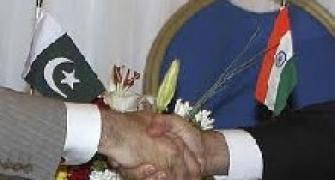Arguing that disengagement with Pakistan is not an option, the United States has said its civilian aid to Islamabad would continue despite unease in bilateral ties.
"As our commanders on the ground will attest, it is critical to our broader strategy that civilian assistance continue in both Afghanistan and Pakistan.
"Disengaging now would undermine our military and political efforts and the national security interests of the US," Secretary of State Hillary Clinton said in a statement accompanying a status report on the Af-Pak region which was submitted to Congress.
The US civilian aid to Pakistan has come down from $1.5 billion in the fiscal 2010 to USD 1.1 billion this year.
The "civilian surge" in Afghanistan and Pakistan that President Barack Obama launched in 2009 to accompany the military surge in the war-torn country has helped advance the US goals of defeating al-Qaeda, reversing Taliban's momentum in key areas and bolstering the economy and civil society of both countries, Clinton said.
As US troops begin a phased drawdown in Afghanistan under a larger plan for transition, the civilian initiatives in both Afghanistan and Pakistan are assuming new importance, Clinton said.
The 23-page Status Report: Afghanistan and Pakistan Civilian Engagement provides a thorough review of US civilian efforts, identifies significant challenges and areas of progress and outlines the way forward.
In its report, the State Department acknowledges that America's relationship with Pakistan is not always easy, but the ties are vital to its national security and regional interests.





